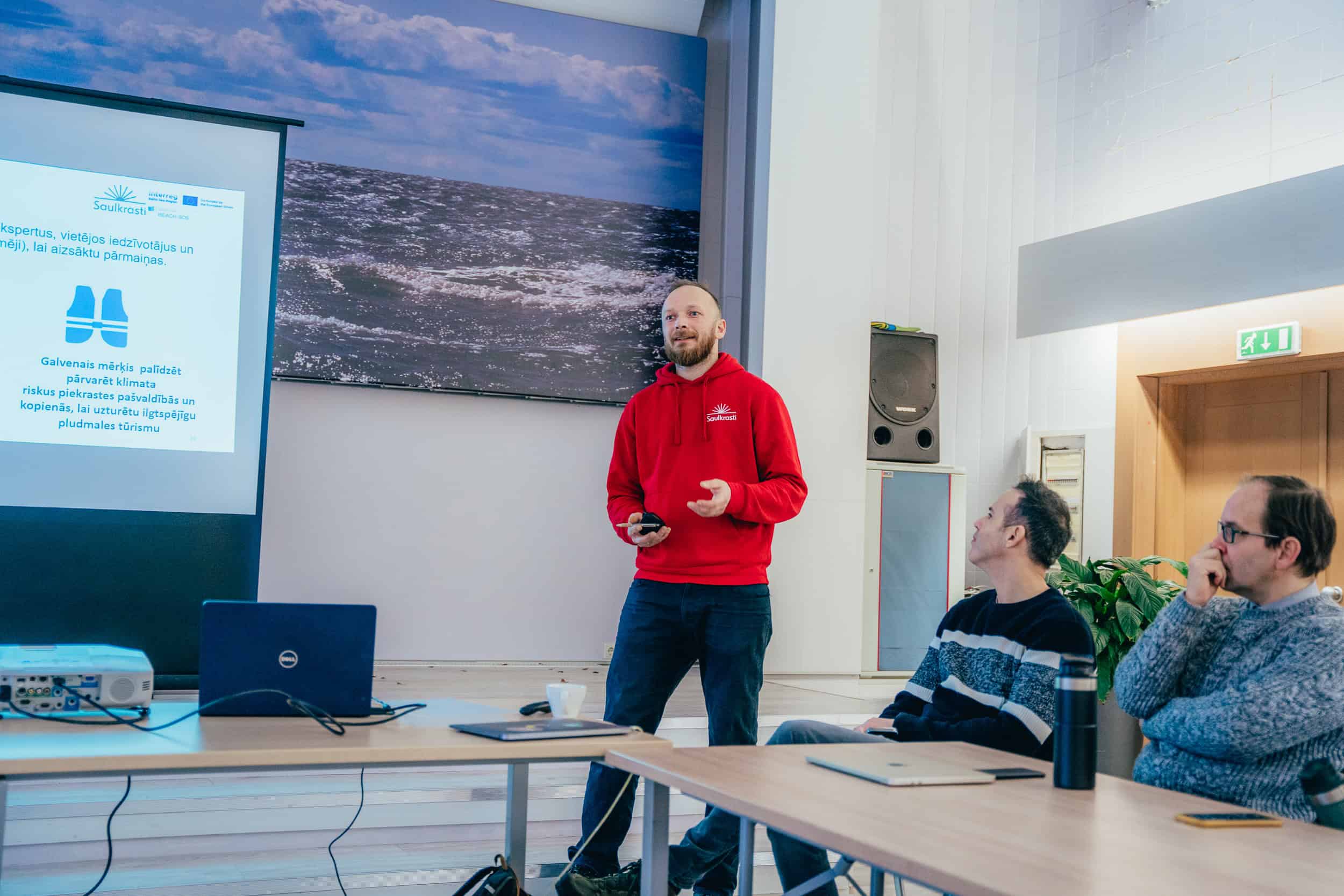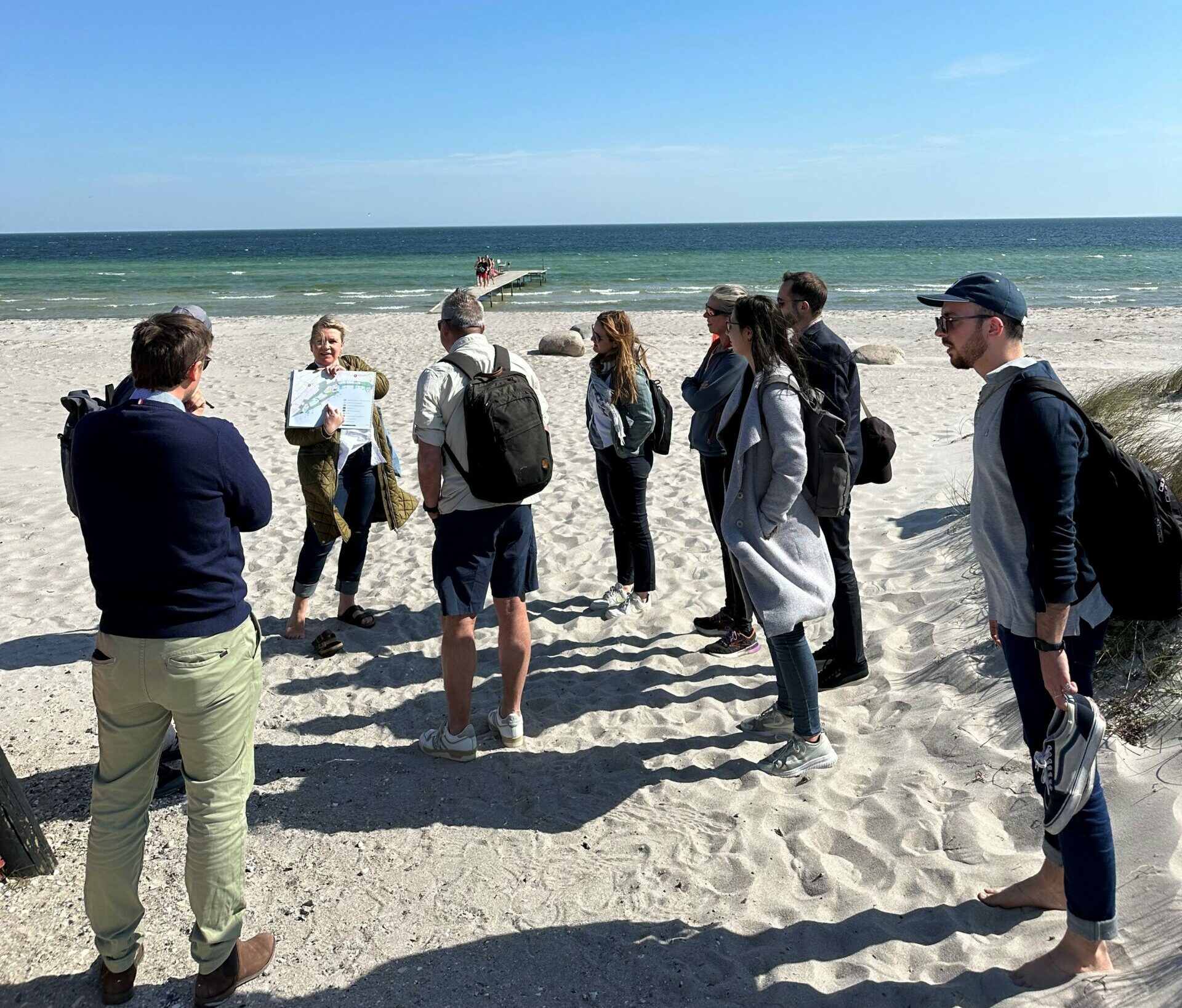
6 May 2024
A resilient future for coastal communities
Written by Anna Zaccaro
In coastal regions around the Baltic Sea, the impacts of climate change are becoming increasingly evident, posing challenges for local communities, businesses, and authorities alike. The BEACH-SOS project aims to confront these challenges head-on, ensuring the sustainability and vitality of beach recreation and tourism in the face of a changing climate. Recently, we had the opportunity to sit down with Rimants Lulis from Saulkrasti Municipality, one of the partners of the project, to discover more about how this project can benefit the municipality and the community in Saulkrasti.
What inspired you to join this project?
In Saulkrasti Municipality, it was evident to us that our coastal region, heavily reliant on tourism, faces significant challenges due to climate change. We’re experiencing increased storms and coastal erosion, impacting our local economy and environment. Participating in the BEACH-SOS project provides us with a platform to collaborate with other municipalities and stakeholders, fostering proactive measures to address these challenges.
What is the challenge you aim to tackle through this project?
The core challenge for us is twofold: addressing the impacts of climate change on our coastal region while ensuring sustainable tourism practices. Our economy heavily depends on tourism, and any disruption due to climate change could have detrimental effects. Therefore, it’s really important to develop strategies that mitigate these impacts while fostering sustainable tourism growth. The BEACH-SOS project represents a proactive and collaborative approach to addressing the complex intersection of climate change and sustainable tourism. Through initiatives like this, communities like Saulkrasti are not only preparing for the challenges ahead but also paving the way for a more resilient and sustainable future for generations to come.

Project Workshop ©BEACH SOS/David Cabana
Why do you need a transnational project to address your challenge?
Our participation in a transnational project like BEACH-SOS is crucial for several reasons. Firstly, it allows us to tap into a wealth of expertise and experiences from other coastal regions facing similar challenges. Also, climate change impacts vary across the Baltic Sea region, and collaborating with partners from different countries provides us with a comprehensive understanding of these nuances. Together, we can develop more effective and tailored strategies to address our specific challenges.
#DidYouknow
Through workshops, networking, and coordination, BEACH-SOS significantly contributes to the Policy Area ‘Tourism’. By linking coastal stakeholders and municipalities, it strengthens sustainability practices, enhances competitiveness, and fosters climate resilience in Baltic tourism. Empowering local authorities with climate data aids in informed decision-making for effective beach management and economic stability.
Who will benefit from your project most?
The primary outcome of our participation in the BEACH-SOS project will be the development of a comprehensive Community Action Plan (CAP). This plan will not only incorporate input from local stakeholders but also leverage the expertise of our project partners. By fostering collaboration and inclusivity, we aim to equip Saulkrasti with a robust framework to address climate challenges and promote sustainable tourism practices. Ultimately, the entire community, including residents, businesses, and local authorities, will benefit from the results of this project.
As you envision the project, what do you anticipate as the most challenging aspect? And wich aspect might be the most exciting?
The most challenging aspect of the project will be addressing skepticism and raising awareness among some locals regarding the reality of climate change. However, I believe education and awareness-building initiatives will help overcome these challenges. On the other hand, the most exciting aspect of the project is the prospect of seeing tangible changes resulting from our collective efforts. Whether it’s municipalities incorporating climate considerations into their planning or businesses adapting their infrastructure, witnessing these real-world impacts will be both gratifying and inspiring.
#DidYouknow
The BEACH-SOS partnership, spanning the Baltic Sea, is led by GERICS, ensuring effective coordination with expertise in coastal climate services. Danish Outdoor Council enriches the project with outdoor expertise. Saulkrasti Municipality shapes local strategies, while Foundation for Environmental Education Latvia promotes environmental awareness. EUCC – The Coastal Union Germany contributes coastal management knowledge. Together with the Blue Flag Program and Gdańsk Sports Center, they bolster coastal resilience in the region.
More recent news
Grand results of the first round of small projects!
Despite the winter scenery, the results of 17 finalised Interreg Baltic Sea Region projects are in full bloom! And behind them lie two years of intensive work across borders, mutual learning and inspiration, and connections that last.
Climate-neutral future at hand for Baltic Sea region cities
Turning a city into a climate-neutral one requires knowledgeable people, thorough planning and solid financial resources. But how can cities manage this transition smoothly? The Interreg project Climate-4-Case guides cities around the Baltic Sea on how to do that right.
Designing Interreg Baltic Sea Region that belongs to everyone
10 December 2025 Designing Interreg Baltic Sea Region that belongs to everyone Written by Eeva Rantama What if the next Interreg Baltic Sea Region...
Monitoring the Programme’s progress: transnational cooperation in the making
Representatives from nine Programme area countries gathered in Berlin on 19-20 November 2025 to review the progress of the Programme’s implementation and start preparing for the post-2027 period.






